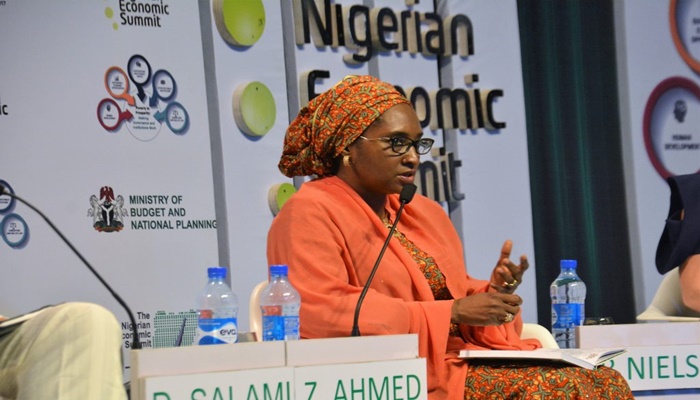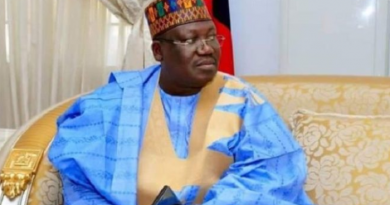Despite recession, Finance Minister give Buhari’s administration thumbs up on managing the economy
In spite of the fact that the nation has gone into recession, the Minister of Finance, Budget and National Planning, Mrs. Zainab Ahmed on Monday said that the economy did better than many global economies.
Speaking at the 26th edition of the Nigerian Economy Summit Group (NESG) in Abuja, the Minister gave the administration thumbs up on managing the economy.
Trying to assure Nigerians that the government is on track to get the country out of recession, she stated that in the last 25 years, “the NESG has “helped to shape government policies, reforms and sector transformation. Despite the recession, Nigeria has outperformed many economies in terms of economic growth.”
This she said can be seen from some economic activities that have “demonstrated strong resilience. They include production, telecommunications, financial institutions, food and beverage manufacturing, construction services, public administration, and courier services.”
Over the years, the finance minister said the federal government has been partnering with the NESG on the national, regional and local development plans.
In his address, the Chairman of NESG, Asue Ighodalo said every year they come to the table “with clear and defined obstacles in search of solutions. The NESG and private sector must do more to address policy needs.”
He told the government that no meaningful development can be achieved if it does not examine many more policy recommendations that have not been acted upon over the years.
Ighodalo also admonished members of the NESG to make the “26th Summit be the one where we collectively resolve to shun off greed, nepotism, and corruption. It is time that we are brave with facing our realities with strength, purpose, and integrity.”
According to him, “this Summit must be different. It must emphasize the execution of endless dialogues. The #NES26 summit is about building partnerships. We all can no longer work successfully alone.”
Nigeria’s Gross Domestic Product (GDP) in real terms declined by -3.62% (year-on-year) in the third quarter of 2020.
This second consecutive contraction threw the economy into recession after suffering an earlier -6.10 per cent decline in the previous quarter of this year.
According to the National Bureau of Statistics (NBS) report, oil GDP contracted by -13.89 per cent from -6.63 per cent in the second quarter of this year and 6.49 per cent in Q3 2019. The non-Oil GDP contracted by -2.51 per cent from -6.05 per cent in Q2 2020 and 1.85 per cent in Q3 2019




